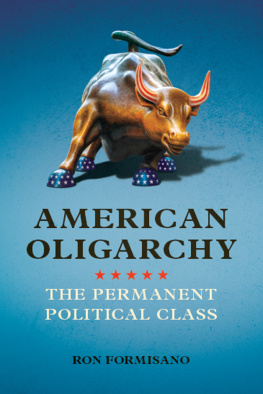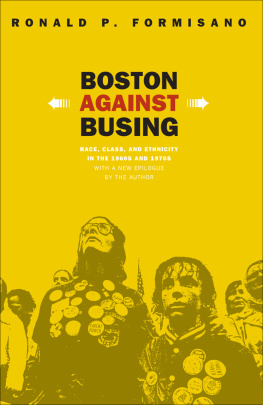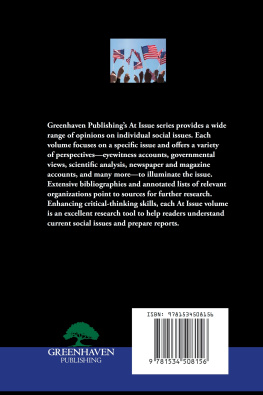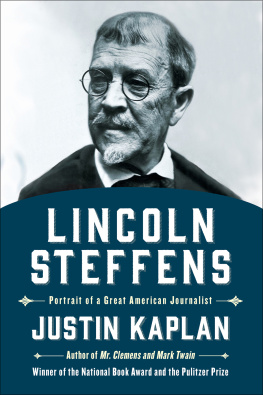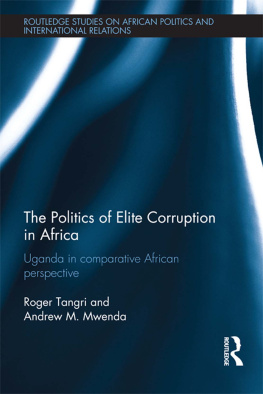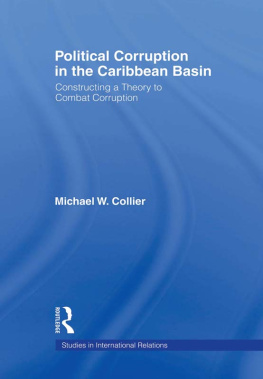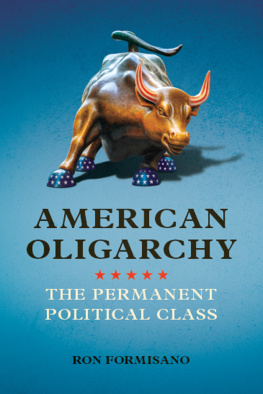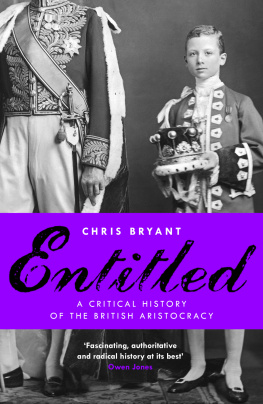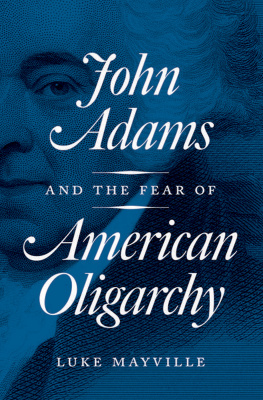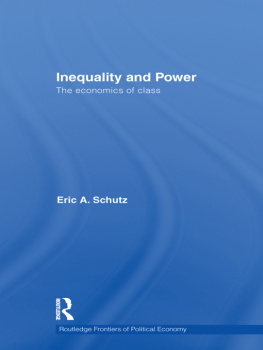Afterword
The history of this country is not a continuous narrative of wealth and power always winning, always greedy, and never limited. Yes, money has always talked, sometimes responsibly for the public good. From colonial times to the present, control of economic resources meant access to political power and government policy, but at times, both inside and outside of electoral politics, those disadvantaged or oppressed by a rigged system have mobilized episodically to check or limit the power of money.
In the latter decades of the nineteenth century, the First Gilded Age, the rise of industrial capitalism concentrated economic and political power in the hands of a corporate-political plutocracy. Then, as now, throughout the country millions of people in all walks of life, but particularly in the agrarian Midwest and South, believed that the two major parties and all government had become subservient to the grandees of industrial and financial capitalism. Building on farmers organizations established to contest the power of railroads and to improve the lives of rural people, the discontented mobilized in the 1890s in the People's Party, a broad coalition of farmers, labor leaders and wage workers, professionals, and middle-class reformers, to restore political and economic fairness and equal opportunity.
One sympathetic historian called them a grand coalition of outsiders, but they were much more than that. Populists launched a formidable challenge to
Since the Populists included many small rural businessmen, large farmers, and middle-class reformers, they were hardly anticapitalist. Rather, they aimed to preserve their propertyfarms and businessesby securing legislation to check corporate power, reverse extreme inequality of income and wealth, and extend democratic representation. A key economic proposal asked the government to establish a subtreasury that would provide credit for farmers, not welfare, and storage for their crops when prices were low. Wage earners in the Populist coalition wanted better pay and working conditions.
The Populists saw a nation suffering under the heel of a plutocratic elite, with the result, as their platform preamble thundered: Corruption dominates the ballot-box, the Legislatures, the Congress, and touches even the ermine of the bench. The fruits of the toil of millions are boldly stolen to build up colossal fortunes for a few, unprecedented in the history of mankind; and the possessors of these, in turn, despise the Republic, and endanger liberty. From the same prolific womb of governmental injustice we breed the two great classestramps and millionaires.
The Populist demand that the power of governmentin other words of the peopleshould be expanded was radical for its time. In proposing government intervention to end oppression, injustice, and poverty, the Populists realized that the Jeffersonian classical-liberal tradition of limited government left them at the mercy of consolidated corporate power, so they engaged in a wholesale reorientation of the republican tradition.
As the Progressive Era intellectual Herbert Croly explained in The Promise of American Life (1909), the Jeffersonian tradition had assumed that the guarantee of equal rights would lead automatically to the fulfillment of the American Promise. But the liberation of self-interest from all restraint led to extreme individualism and the oppression and injustice that the Populists challenged. The existing concentration of wealth and financial power in the hands of a few irresponsible men is the inevitable outcome of the chaotic individualism of our
Croly described well what the Populists had already done, and Progressive Era presidents continued with policy, in synthesizing the Jeffersonian and Hamilton traditions. At the time Croly wrote, his hero, Theodore Roosevelt, and after him William Howard Taft, both Republicans, and Democrat Woodrow Wilson, successively enacted substantial parts of the Populist program and brought into existence, in historian Elizabeth Sanders's words, a rudimentary interventionist state that limited corporate prerogatives in ways that seemed genuinely frightening to capitalists at the time. Progressive presidents and congressional representatives after them continued the Populists struggle to bring into being a regulatory state to restrain rapacious corporations, [and] prevent excessive concentration of wealth and market power In the 1930s a Great Depression that crippled the country led Franklin D. Roosevelt and Progressive congressional majorities to expand the power of the federal government to an unprecedented level, once again for Jeffersonian ends.
The Progressives and New Dealers freed themselves from the past, as Americans have done since at least the American Revolution. They need once again to reorient their thinking about the economy and government and to discard the bankrupt fictions of a permanent political class that is neither meritocratic nor democratic. American Oligarchy has been written, not to propose a path out of the New Gilded Age, but to discredit the political class by raking its muck between covers in black and white.
The Populist Tsunami of 2016 exposed how vulnerable the permanent political class has become. A self-described democratic socialist almost unseated the Democratic establishment's anointed champion. In the Populist platform preamble above substitute for tramps and millionaires the words the poor and billionaires, and Bernie Sanders's populist rhetoric is approximated. More importantly, he proposed to check the power of concentrated wealth and to restore fairness to a rigged economy. Many Trump voters, according to polls, were willing to vote for Sanders, suggesting that those middle-class and working-class whites should not be written off as bigots or unready for the right kind of change. Populist upheavals often have tended to be ephemeral, but the millions of Sanders's supporters, and many of Clinton's and Trump's, appear to have had their fill of the self-dealing, immunities, and fraudulence of the political class.
If the political shocks of 2016 proved anything, it's that millions of Americans want their government to provide opportunity and protect them from economic insecurity. They thirst for fairness in the distribution of benefits and social goods, for fairness in the legal and justice system, for social justice, and for actions that match talk. The yearning for a government that serves the people leads many of the disillusioned to listen to the wrong voices. They disengage or vote for none of the above, or follow the buncombe of a Pied Piper leading them nowhere and to further disillusionment. They live in a culture of artifice, of truthiness (in Stephen Colbert's famous word coinage) and self-indulgence, in which the satisfaction of individual desires (wants advertised into needs) supplants all concern for the common good. Thus are they taught by example from above, by the political class and the din of consumerism. They need to see clearly what goes on there, up above, with veils of pretense, rhetoric, and falsehood stripped away.
Ron Formisano is the William T. Bryan Chair of American History and professor emeritus of history at the University of Kentucky. His books include Plutocracy in America: How Increasing Inequality Destroys the Middle Class and Exploits the Poor, The Tea Party: A Brief History, and For the People: American Populist Movements from the Revolution to the 1850s.
The University of Illinois Press
is a founding member of the
Association of American University Presses.

University of Illinois Press
1325 South Oak Street

